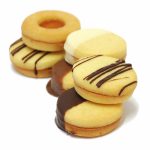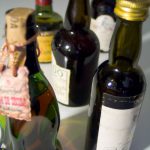There are several occasions throughout the year that call for champagne or at least sparkling wine. However, for the most part, your guests are all enjoying their drink of choice and the glass of bubbly you hand them will be used only for toasting purposes. More often than not, we find ourselves with leftover bubbles and no real clue how to put them to good use. Many might opt for a champagne breakfast the following day but, if this is not for you, there are many ways in which you can cook with that left over champagne!
Firstly, if you have ever cooked with wine, then cooking with champagne will be a breeze. The same “rules” apply and it’s good to remember to taste the champagne before you start cooking. If the bottle has been opened and more than one week has gone by, it could start to taste more like vinegar than anything else! This flavour can really overpower that of your food and this is the exact opposite of what you hope to achieve.
If, however, you simply don’t get the chance to use the champagne before the “time limit” of one week, you can always set it aside and use it in a champagne vinegar recipe instead. In other words, you really need not let one drop go to waste!
When choosing a bottle of bubbly specifically for cooking, remember that you don’t need to use the most expensive one you can find. In fact, it’s better to use the cheaper ones and save your good bottles for drinking. This is exactly the same principal that applies to cooking with any kind of wine. When using wine in food, the other ingredients will help mask any strong flavours. Plus, through cooking, the alcohol will be eliminated from the wine so there’s nothing left but the flavour.
If you find yourself staring at a recipe that calls for sparkling wine or champagne but you don’t have any in your home, you might be able to substitute with regular white wine. At the end of the day, sparkling wine is just that – wine with bubbles and, when cooking, the bubbles are not going to make even the slightest difference. That said, there are some slight flavour differences that can be noticed if you are familiar with your wines.
It’s important to note that most of the alcohol is eliminated through cooking but you should always make sure that your guests are not sensitive to wine or alcohol before you make this sauce. Alternatively, you can make your champagne sauce and set it on the side along with another non-wine sauce just in case. There are also those who avoid all kinds of alcohol for personal or religious purposes which means that it’s only fitting to respect their wishes by asking or offering an alternative.


Be the first to post a comment.